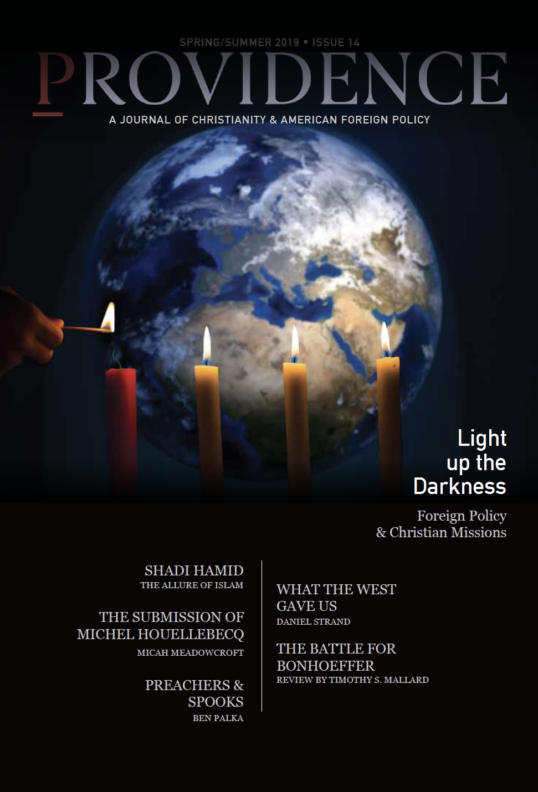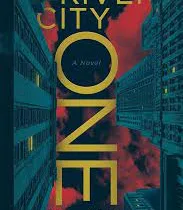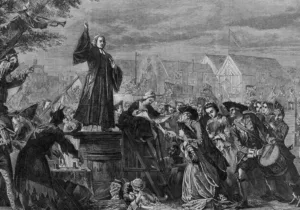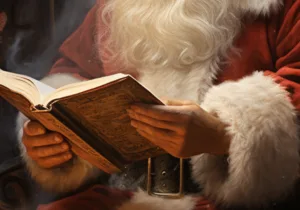With the 2015 publication of Submission, Michel Houellebecq became notorious. This slim novel speculated how Islamist parties might rise to power in a near-future France. The furor it caused in Europe, where the writer was already widely celebrated, crossed the pond, with the book’s launch morbidly boosted by the coincident Charlie Hebdo attacks. Anxieties about the West, decadence, and migrants translated rather well to a United States getting premonitions politics were about to become very strange. As things did indeed get stranger here, and the refugee crisis worsened there, Houellebecq became not just a chronicler of the moment but was judged to be some kind of oracle, his novels raised to the status of harbingers. Thus was his latest, Serotonin, dubbed “A Novel Made for the ‘Yellow Vest’ Moment” by The Atlantic and scrutinized for insight into the current health of the European Union.
But Houellebecq is still the author of The Elementary Particles, and before that of Whatever, and after those Platform, The Possibility of an Island, and The Map and the Territory. And maybe if what he writes now is, as they say, relevant, what he wrote then might be, too. So, let’s see.
Who is he, this seeming prophet? That Houellebecq is still alive when other critics are not is suggestive. Yukio Mishima committed seppuku when he discovered a novelist could not restore the emperor of Japan. David Foster Wallace killed himself, too. Despite liberal modernity’s castrations via consumerism, Houellebecq chooses to live. (Though not without writing his own murder.) His art, not just novels but other media too, appears enough for him to muddle along; he has found an arrangement with the society he condemns and satirizes that seems to offer sufficient satisfaction. So there is the matter of his photographs. Not the ones Houellebecq takes, but the ones of him. Look him up online or turn to the back of one of his recent books and you will find that the author has—deliberately, one learns upon inspecting older pictures—cultivated his own ugliness. Hair, posture, wine-and-cigarette-tortured skin, even lighting all put in service to turn features that have character, if striking is too generous, into a mask that is more than a little bit repellent. It is the knowing glance of a physiognomist he gives the camera, or the gaze of disregard away from it, that says perhaps it takes an ugly face to really see an ugly world.
This isn’t simple misanthropy, though, or mere self-loathing. There’s something we his readers recognize in his novels as correct. Submission was darkly fortuitous in its timing, but even without the echoes of gunshots in Paris the story it told—of a comfortable academic and his post-regicide, post-Christendom France walking the path to Dar al-Islam—rang a bell.
Modern liberalism itself was historically a consequence of the weakness of religiously-based societies which, failing to agree on the nature of the good life, could not provide even the minimal preconditions of peace and stability. In the contemporary world only Islam has offered a theocratic state as a political alternative to both liberalism and communism. But the doctrine has little appeal for non-Muslims, and it is hard to believe that the movement will take on any universal significance.
That’s Francis Fukuyama for the National Interest in 1989, when he was still willing to include a question mark at the end of “The End of History?” With the publication of his 1992 book version of the thesis, he affirmed his belief that it was liberalism that had won, would endure, despite its essential emptiness, despite the evident, even then present fact that “[t]he end of history will be a very sad time.”
It is. Houellebecq has documented, probed, and anticipated its present apotheosis. His novels are, as his own fictionalized self puts it in The Map and the Territory, part of “the world as narration”—stories of individuals’ encounter with history, with their own differentiation in the midst of systems, societies, and processes larger than themselves. But in his novels’ completion they contain, too, elements of “the world as juxtaposition”—there is a place at which the good novel achieves what is properly the realm of the painting or poem—and our encounter is with a coherent image and not just a character.
The image found in each of Houellebecq’s novels, juxtaposing the reader’s complacency with a constructed object that presents a disquieting other perspective, is one where it is modern liberalism itself, failing to agree on the nature of the good life, that cannot provide even the minimal preconditions of peace and stability. Each novel is a picture of a failed life, or a life that succeeds only by recognizing the failure of the society around it. Communism and its eschaton is dead in Houellebecq’s work; the Chinese are tourists. But Islam, with its this-world emphases and order, is something alive, even outside Submission, a novel which contra Fukuyama asks us to consider the appeal Islam may indeed hold for non-Muslims. But all of Houellebecq’s novels could be attempted answers to the final thought of Fukuyama’s essay, the possibility that the “very prospect of centuries of boredom at the end of history will serve to get history started once again.”
Throughout history, most men have deemed it correct, at a certain point in life, to allude to sexual problems as though they were just trivial childish games, and to assume that the real subjects, the subjects worthy of a man’s attention, were politics, business, or war, etc. The truth, in Daniel1’s time, began to be unearthed; it became more and more clear, and more and more difficult to hide, that the true goals of men, the only ones they would have pursued spontaneously if it were still possible for them to do so, were of an exclusively sexual nature. (The Possibility of an Island, 226)
It is in the deregulation of sexuality that Houellebecq sees the breakdown of modern liberalism. History will not end till sex has lost its power, and it will not do that, not naturally. Deregulation is the right word, for it is “the extension of the domain of the struggle” found in capitalism into a sexual marketplace, as the protagonist puts it in the writer’s first, too didactic work, titled in English as Whatever. Sexual liberalism, as recent concerns about a millennial “sex drought” has brought into the public conscience, can result in a kind of wealth inequality perhaps as drastic as and parallel to that produced by the global economy.
The Elementary Particles established Houellebecq as a novelist, and not just, like legions of unheard-of Frenchmen before him, a philosopher with literary pretensions. In it the biographies of a pair of half-brothers, victims of a mother and society who fully embraced the spirit of 1968 and the sexual revolution, narrate the excesses and emptiness of the ’90s. One brother seeks participation, the other withdrawal. They are head and tail of the promise of appetitive satiation, a promise made by consumer culture with ever greater insistence, as it produces new desires, cultivates new taxonomies of appetite as replacement for the universal and simple desire to love and reproduce. In the internet speech of the present, two decades after the book’s publication, they are the incel and the volcel—the involuntary celibate, who cannot, and the voluntary celibate, who will not. Neither brother succeeds in building a stable family, in repairing the rupture of their own ancestry. Instead, one succumbs to madness following a lifetime of failure to find satisfaction for his lusts, and the other dies alone, a scientist who studied the possibility of asexual reproduction, after a lifetime of detachment.
The 2001 Platform asks if perhaps doubling down on globalism can provide the sexual satisfaction and personal meaning missing for the kind of dissolute, moderately successful bureaucratic functionary Houellebecq so often summons. New characters, new story, new experiments and growths in style, but the type remains. Platform could have been called “offshoring.” People of developing nations do the jobs Westerners won’t. Here jobs means provide sex and—dreaded emotional labor—companionship. Our hero is a sex tourist who goes all the way to Thailand to unexpectedly find himself a Parisian girlfriend, a woman who works in the travel industry. She is intelligent, beautiful, and liberated. In their unexpected happiness and hardworking success, they are generous meritocrats, for, thinking of the losers of the sexual marketplace, and the impoverished of the third world, and their own bottom line, they propose to facilitate better—more bang for your buck, you know—sex tourism available to all. But that venture ends as tragedy with disaster and death, attacked by an anti-colonialism Left on one side and the bombs and guns of Islamic fundamentalists on the other.
So, liberalism cannot solve its interpersonal crisis by global market means, not without aggravating its relationship with the rest of the world even while weighed down with inherited moral baggage. What if nature herself were to be changed? Houellebecq gestured at that possible solution in The Elementary Particles with the work of the scientist brother, Michel. In The Possibility of an Island he explores it in full; the narration follows a wealthy and famous comedian, the rise of a new gnostic cult—somehow, as always, sterile in its sexual freedom—and the creation and existence of neo-humanity. An elect mankind is changed; the question is how much. Old humanity, us, is abandoned to disease and the elements, and these new creatures live in splendid isolation, anchorites for a genetic destiny. But they are clones of us still, even if altered, and so, Houellebecq concludes, even they cannot escape the dissatisfaction and ennui of a loveless, safe existence. There is no self-gift, no act of creation, in the reproduction of copies.
But here and now we are not copies, and the human capacity for creative acts seems boundless. If Houellebecq himself can muddle along, isn’t that enough? In his fictionalized, to-be-murdered voice, waxing enthusiastic about perfect products no longer available for purchase, Houellebecq utters a prepositional phrase too descriptive for all of us: “In my life as a consumer.” It is in the identities of consumer and of product that The Map and the Territory finds not just bureaucratic mediocrities but even the creatively successful—artists like the protagonist Jed Martin or the meta-Houellebecq—are reduced to and stuck. For Jed the complacency this worldview engenders causes him to let love go—his serious girlfriend taken away by work—and he is unable to resist the reasonableness of that parting. They are, after all, individuals, atomic, particular. And where does all this lead? To a murder, to suicide, to a Swiss street containing a whorehouse and a euthanasia clinic where Jed can only conclude that “the market value of suffering and death had become superior to that of pleasure and sex.”
So this is what preceded Submission, and if it speaks with the voice of truth, should it be any wonder that France, or her stand in character François, would choose to submit and recite the Shahada? “It’s sad, the shipwreck of a civilization, it’s sad to see its most beautiful minds sink without trace—one begins to feel slightly ill at ease in life, and one ends up wanting to establish an Islamic republic.” That’s from The Possibility of an Island. For Houellebecq, it seems what placed the West at the crossroads of the grave and Mecca, dying of consumption and in need of strong medicine—why, to borrow a phrase from the political theorist Patrick Deneen, liberalism failed—is a collapse of public Christianity and marriage.
Marriages are, in Houellebecq’s novels, either broken and banal in their brokenness—the common ancestral wreckage from which his, yes, usually male characters emerge into alienation—or they are mysterious and remote in their tenderness. There are happy marriages and contented permanent partnerships for peripheral characters to be found in these works, but they are for older people and inaccessible, only to be approximated by his protagonists, temporarily, in basically accidental periods of monogamy. The natural purpose of such monogamy, the production and loving nurture of children, is nearly absent. Sterility, by choice or condition, plagues even the most domestic of loving unions depicted by the novelist. In these conditions, without the limits of covenant or offspring, sex is an unleashed force in human lives, with nothing creative in its power for destruction. Basically, for Houellebecq, polygamy is perhaps a good solution.
“But here, in the absence of the risen Christ, you needed nymphs, shepherdesses, tits and ass, basically,” (178) the protagonist of Platform puts it, at a funeral. This failure to marry and be given in marriage, this failure to reproduce, emerged in a time of Christian retreat. The Catholic Church—though other denominations may be mentioned, this is France—survives to Houellebecq as a peculiar object, but not as, properly, a witness. In the splendor of its architecture, at Santa Maria de Montserrat or Sacré-Coeur, and in the occasional sighting of those in holy orders, it possesses a public persistence, but one that makes no statement beyond its own diminishment. Of priests in The Map and the Territory:
Jed had sometimes envisioned doing a portrait of one of those men who, chaste and devoted, less and less numerous, criss-crossed the big cities to bring the comfort of their faith. But he had failed, and hadn’t even managed to comprehend the subject. Inheritors of a millennia-old spiritual tradition that nobody really understood anymore, once placed in the front rank of society, priests were today reduced, at the end of terrifyingly long and difficult studies that involved mastering Latin, canon law, rational theology, and other almost incomprehensible subjects, to surviving in miserable material conditions. (58-9)
Houellebecq, a peace-be-upon-and-with-him prophet of modern liberalism, portrays the good life by means of a via negativa, by the appearance of its absence and what it is not. He observes that the contemporary West fails to preserve the minimal preconditions of peace and stability. The shared preoccupation of author and characters with sex is revealed upon reflection to not be the dreary gratification of a pervert novelist but the heart of the matter. In the absence of a voice speaking loudly to this world of the next in words comprehensible to those who live here, this-world satisfaction reemerges as the only motive force giving coherence to life. Which is to say that when the spiritual strangeness of Christianity—with its promise of an eschaton where they will neither marry nor be given in marriage, every desire met by the superabundance of love in the beatific vision—exists primarily in public as a consumer choice among others, or as an alien rationality without transformative claim on current society or its perpetuation, then it is in the natural, animal terms of access to sex and the direction of violence that a life is measured.
On those terms Houellebecq seems to suggest liberal order and political Islam are particularly juxtaposed, and that Islam emerges with possible advantage, more efficient (at least in theory, for many nations of the Muslim world face their own demographic crises) in reproduction and the distribution of sexual satisfaction and more effective in the assignment of meaning to inevitable human conflict. Consumer culture has nothing to offer beyond more consumption. If this ugly Frenchman sees the ugliness of the world clearly, then it is not, contrary to Fukuyama, boredom which jumpstarts history again but the denial of essential human nature, not just what Christians call fallenness but also animal flesh. Nature herself, or lady Wisdom of the Proverbs, cries out and will reassert herself. It is on us to listen.







 Live in the DC area? Sign-up for Providence's in-person events list!
Live in the DC area? Sign-up for Providence's in-person events list!